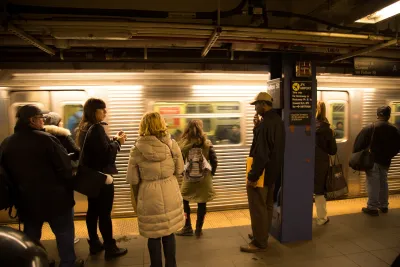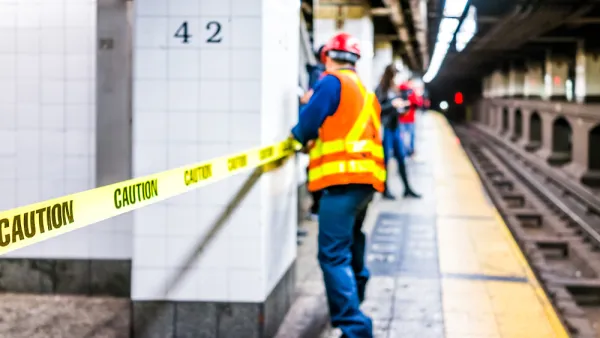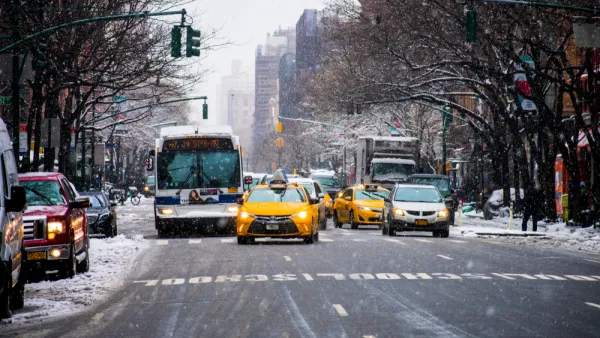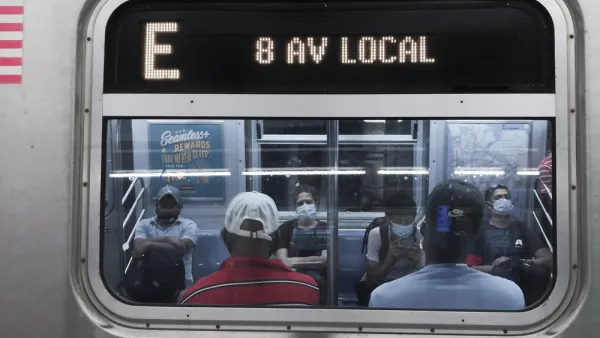A series of federal relief funding in 2020 and 2021 helped the New York MTA keep its head above water over the past three years, but the funding is running out and the books still have to be balanced for a post-pandemic world.

The New York Metropolitan Transportation Authority (MTA) took initial steps toward addressing its ongoing fiscal crisis—a persistent theme since the outset of the pandemic that has taken on new urgency without any large-scale relief packages, such as the Covid Relief Act of 2020, on the horizon. According to an article by Steve Bittenbender for the Center Square, the MTA is facing a $11.4 billion shortfall over the next four years.
“With just $5.65 billion in federal COVID-19 relief funding remaining, and ridership still lagging from pre-pandemic levels, the state agency that oversees mass transit in the New York City area is looking at a mix of cost saving measures and additional revenue streams to tackle the shortfalls it expects through the 2026 fiscal year,” reports Bittenbender. The MTA’s budget plan was made public during a presentation to the board at the end of November.
The MTA will still need help to balance the books, however. “Part of that plan is the assumption of $600 million more in government aid to help cover the shortfall for the 2023 fiscal year,” reports Bittenbender.
As reported by Jose Martinez for The City, riders might end up covering some of the budget deficit as well. “On the subways and buses, that could mean a $2.90 fare in 2023 and one that hits $3.05 by 2025,” according to Martinez. The MTA last raised fares in April 2019.
FULL STORY: New York transit to address $11.4 billion budget deficit

Analysis: Cybertruck Fatality Rate Far Exceeds That of Ford Pinto
The Tesla Cybertruck was recalled seven times last year.

National Parks Layoffs Will Cause Communities to Lose Billions
Thousands of essential park workers were laid off this week, just before the busy spring break season.

Retro-silient?: America’s First “Eco-burb,” The Woodlands Turns 50
A master-planned community north of Houston offers lessons on green infrastructure and resilient design, but falls short of its founder’s lofty affordability and walkability goals.

Test News Post 1
This is a summary

Analysis: Cybertruck Fatality Rate Far Exceeds That of Ford Pinto
The Tesla Cybertruck was recalled seven times last year.

Test News Headline 46
Test for the image on the front page.
Urban Design for Planners 1: Software Tools
This six-course series explores essential urban design concepts using open source software and equips planners with the tools they need to participate fully in the urban design process.
Planning for Universal Design
Learn the tools for implementing Universal Design in planning regulations.
EMC Planning Group, Inc.
Planetizen
Planetizen
Mpact (formerly Rail~Volution)
Great Falls Development Authority, Inc.
HUDs Office of Policy Development and Research
NYU Wagner Graduate School of Public Service




























